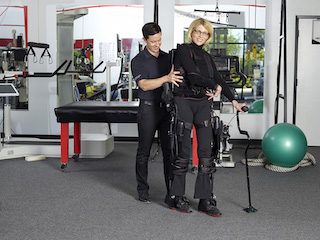 The Burke Rehabilitation Hospital has been a leader in medical rehabilitation for nearly one hundred years. Located in White Plains, New York, Burke is a 150-bed hospital, entirely dedicated to rehabilitation medicine. Since 1968, Burke Rehabilitation Hospital has been affiliated with Weill Cornell Medical Center. Burke Medical Research Institute (BMRI) is a nonprofit leading scientific research institute devoted to advancing the study of neurological diseases and injuries, pioneering novel rehabilitation therapies and developing innovative clinical programs and clinics.
The Burke Rehabilitation Hospital has been a leader in medical rehabilitation for nearly one hundred years. Located in White Plains, New York, Burke is a 150-bed hospital, entirely dedicated to rehabilitation medicine. Since 1968, Burke Rehabilitation Hospital has been affiliated with Weill Cornell Medical Center. Burke Medical Research Institute (BMRI) is a nonprofit leading scientific research institute devoted to advancing the study of neurological diseases and injuries, pioneering novel rehabilitation therapies and developing innovative clinical programs and clinics.
Based at Burke Rehabilitation Hospital and working synergistically with its academic affiliate, Weill Cornell Medicine, BMRI is comprised of several research laboratories focused on functional recovery from various neurological diseases and injuries.
In 2013, the Restorative Neurology Clinic at Burke Medical Research Institute in White Plains, New York, established a self-pay clinic to offer breakthrough state-of-the-art robotic neurorehabilitation therapies for individuals who are recovering from stroke, spinal cord injury, traumatic brain injury, and other neurological conditions. The clinic was launched based on many years of clinical research conducted at Burke Medical Research Institute that has investigated robotics to assist in neurorehabilitation, pioneered by the Massachusetts Institute of Technology.
Utilizing robotic-assisted therapy has been proven to lead to significant and meaningful improvements in motor function for individuals who have had a neurological condition. “Robotic therapy is not like using R2D2 from the movie Star Wars, but is an effective treatment that allows patients to use his/her weak
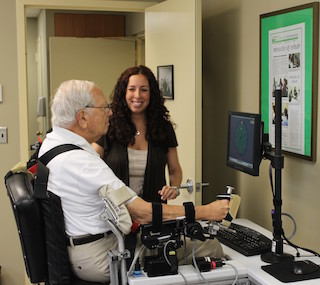
limb(s) to help with brain and central nervous system healing – also known as neuroplasticity. Robotics offers repetitious movement, feedback, and continuous motor challenge, which cannot be offered in traditional therapy settings and are key to motor recovery,” says Co-Founder and Chief Operating Officer of the Restorative Neurology Clinic, Avrielle Rykman Peltz. Peltz is an occupational therapist and expert in neurological upper & lower limb recovery using cutting-edge robotic technology and standardized upper extremity assessments. Along with Peltz, co-founder and stroke survivor Marc Tesler, a retired venture capitalist, have the shared mission and vision to accelerate the access and delivery of new, validated therapies to neurological patients and expand current therapies used with existing patient groups and to other people in need. The Restorative Neurology Clinic is also overseen by Dr. Dylan J. Edwards, Chief Executive Officer, a neuroscientist and a physical therapist with expertise in motor recovery using robotic neurorehabilitation and brain electrical stimulation, who reported that his mission is to “accelerate the advancement of cutting-edge robotic therapies to promote long-lasting improvements for impairments caused by neurological injuries.”
The Restorative Neurology Clinic (RNC) at Burke also offers a comprehensive upper limb robotics program focusing on restoring movement and function in shoulders, elbows, forearms, wrists, hands and fingers, and we are proud to announce that we have recently expanded to include an extensive lower limb robotics program, focusing on restoring movement, balance, and function to hips, legs, knees, and ankles.
The Restorative Neurology Clinic offers intensive, customized 6-week workshops utilizing robotic devices and new cutting edge technologies that are FDA approved. Participants are overseen by a team of highly trained and experienced licensed therapists and staff. All consultations and comprehensive evaluations are free of charge. Free research programs are available for those 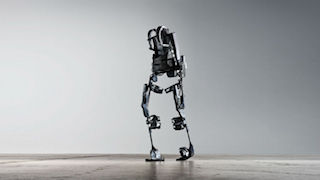 who qualify and free services are offered for US Veterans with proof of service. A medical clearance is required to enroll in a non-research-based program. For more information about the Restorative Neurology Clinic or to schedule a tour please call 914-597-2111, and to download forms or watch videos about the Restorative Neurology Clinic, please go to our website at http://www.burke.org/research/research-focus/restorativeclinic.
who qualify and free services are offered for US Veterans with proof of service. A medical clearance is required to enroll in a non-research-based program. For more information about the Restorative Neurology Clinic or to schedule a tour please call 914-597-2111, and to download forms or watch videos about the Restorative Neurology Clinic, please go to our website at http://www.burke.org/research/research-focus/restorativeclinic.
Since its inception, the breadth and depth of research at Burke has dramatically expanded from neurological disabilities induced by stroke, spinal cord injury, traumatic brain injury, and Alzheimer’s disease to include motor, pain, sensory, cognitive, and vision recovery. The Restorative Neurology Clinic specializes in stroke, spinal cord injury, traumatic brain injury, and those with other neurological conditions including, but not limited to Parkinson’s, Multiple Sclerosis, ALS, Brachial Plexus Injuries and Huntington’s Chorea. The clinic is open to all and will not turn anyone away, even when patients have been told by others they have “plateaued” in their recovery. Cutting-edge research studies, clinical trials and clinical programs conducted at Burke Medical Research Institute are providing a new frontier for forthcoming treatments and state-of-the-art rehabilitation therapies. The Restorative Neurology Clinic aims to empower Burke Rehabilitation Hospital and to deliver the best rehabilitation strategies for today and hereafter, as well as to improve the quality of life and well-being of the acutely and chronically disabled.



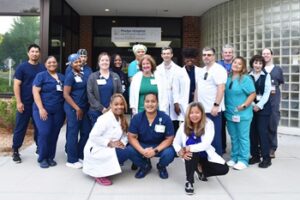

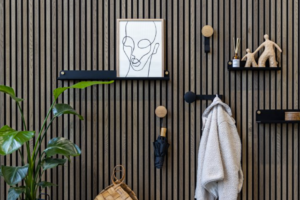

Does this facility still exist at Burke.I went to Burke outpatient PTand OC 1yr. ago for SPMS. Regular did not work for me. I am very compromised physically . I asked about robotic therapy and was told that no longer existed at Burke Rehab. Laura Fallon told me about Rehabologym but that was to expensive. I hope to hear from you in the near future.
Thanks,Madeline Minkler